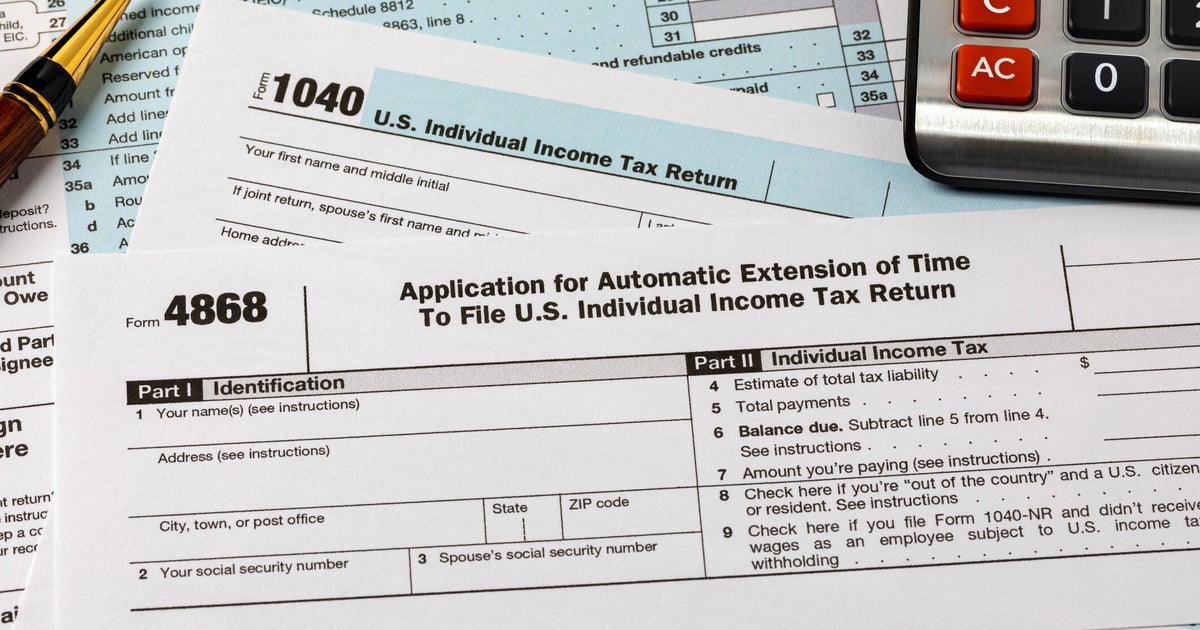Getty Images
Every spring, taxpayers across the country rush to pull together the forms, receipts and financial records required to file their taxes before the April 15th deadline. No matter how prepared you think you are, though, all it takes is a missing form or two, a complicated financial situation, or an emergency to get in the way of filing on time. When that happens, requesting a tax extension can be a quick but temporary fix.
By filing a simple form with the Internal Revenue Service (IRS), you can buy yourself extra time to prepare your tax return without incurring steep late filing penalties. Millions of taxpayers request extensions annually, according to the IRS, with the number climbing as people’s financial lives become more complex. So, if you’re unable to get your paperwork done in time, an extension seems like an obvious solution.
But many filers think an extension also delays their payment due date, and misunderstanding how this or other IRS rules work can lead to extra charges and penalties. So, does a tax extension give you more time to pay, or does the IRS still expect your money by the original deadline?
Find out how to get help with your delinquent tax debt today.
Does a tax extension delay your payment?
The short answer is no, a tax extension doesn’t delay your payment to the IRS. A tax extension gives you additional time to file your return — usually six months, moving the due date from mid-April to mid-October — but the IRS still requires taxpayers to estimate and pay their tax liability by the standard deadline. The best approach is to think of a tax extension as a way to avoid the late filing penalty, which can be as high as 5% of your unpaid taxes per month. If you fail to pay your total tax bill by the April 15th deadline, the IRS will typically charge:
- A late payment penalty: This penalty is 0.5% of the unpaid amount each month (or partial month), up to 25% in total.
- Interest: The interest charges start accruing immediately after the April deadline. The IRS adjusts its interest rate quarterly, and it’s currently about 7%, compounded daily.
To minimize these types of penalties, you need to submit an estimated payment along with the IRS extension request form. If you’re unsure of your exact tax liability, use your most recent pay stubs, investment statements and last year’s return as a starting point. Even a rough estimate is better than paying nothing, and if you end up overpaying, you’ll get a refund after you file. If you underpay, the IRS will charge interest on the difference, calculated from the April deadline until you settle the balance.
Explore your IRS tax debt relief options online now.
What to do if you can’t pay your IRS tax bill
If you’ve filed an extension but can’t pay the full amount you owe to the IRS, don’t panic. There are numerous solutions to the issue, including:
- Requesting an installment agreement: The IRS allows taxpayers to pay off their balance in monthly installments. Both short-term plans (180 days or less) and long-term plans (more than 180 days) are available, depending on how much you owe.
- Qualifying for an Offer in Compromise: If you’re experiencing significant financial hardship, you may qualify to settle your tax debt for less than the full amount. The IRS will consider your income, expenses and assets when reviewing this type of request.
- Inquiring about Currently Not Collectible status: If paying your tax bill would leave you unable to cover basic living expenses, you can ask the IRS to delay collection. Interest and penalties will continue to accrue, but the IRS will halt active collection efforts temporarily.
- Requesting penalty abatement: If you have a history of filing and paying on time, the IRS may waive certain penalties for a first-time offense or when you’re facing certain issues, like a serious illness or natural disaster.
- Working with a tax relief expert: Navigating IRS programs can be complicated. A tax relief professional can help you understand your options, negotiate on your behalf and potentially reduce your overall debt. This can be especially helpful if you’re facing liens, levies or aggressive collection actions.
The bottom line
A tax extension gives you extra time to get your paperwork in order, but it doesn’t delay the IRS’s payment deadline. To avoid costly penalties and interest, pay as much as you can by the regular due date — even if you can’t pay in full. And if your tax bill feels overwhelming, it may benefit you to explore your IRS payment options or consider working with a tax relief specialist to create a plan. The sooner you act, though, the more control you’ll have over the situation.
(Except for the headline, this story has not been edited by PostX News and is published from a syndicated feed.)


